






Conquer Recovery
Verified Center
This provider's information has been quality-checked by Recovery.com's Research Team for accuracy and completeness, including center verification through appropriate third-party organizations.
Treatment Focus
This center treats substance use disorders and co-occurring mental health conditions. Your treatment plan addresses each condition at once with personalized, compassionate care for comprehensive healing.
Primary Level of Care
Offering intensive care with 24/7 monitoring, residential treatment is typically 30 days and can cover multiple levels of care. Length can range from 14 to 90 days typically.
Treatment Focus
This center treats substance use disorders and co-occurring mental health conditions. Your treatment plan addresses each condition at once with personalized, compassionate care for comprehensive healing.
Primary Level of Care
Offering intensive care with 24/7 monitoring, residential treatment is typically 30 days and can cover multiple levels of care. Length can range from 14 to 90 days typically.
Provider's Policy
All private insurance plans accepted at Conquer Recovery (Medicaid, Medi Cal, and Medicare are not currently accepted).
Conquer Recovery
Conquer Recovery
About Conquer Recovery
Conquer Recovery provides comfortable residential treatment and detoxification in Los Angeles, California. Conquer Recovery has 3 private bedrooms and a shared room that can hold 3 clients, ensuring a tight-knit community and lots of individualized treatment. They take a comprehensive approach to treatment, using evidence-based and holistic therapies to give each client lasting recovery.
A Full Range Of Expert Care
Led by a team of experts, clients will undergo medical detox, if necessary, before entering into a 30-day residential treatment program. Residential programs begin at 30 days and can be extended based fully on the individual needs of each client. There, clients will engage in individual therapy, group therapy, family therapy, and aquatic therapy in the on-site pool. Individual therapy keeps clients well-connected with their counselor, while group therapy offers a chance to bond with other clients, hear different perspectives, and work through core issues in a uniquely understanding environment. Conquer Recovery also understands the imperative importance of family involvement during treatment, which is why they provide family counseling, psycho-education, and self-care help for family members.
Dual-Diagnosis Treatment And Active Therapies
Physical fitness is an important part of Conquer Recovery’s treatment process. Clients will have the opportunity to engage in yoga therapy, massage therapy, and more. Conquer Recovery is well-equipped and ready to treat clients with mental health disorders by offering dual diagnosis treatment. Their variety of expert therapy methods help treat co-occurring conditions like anxiety, depression, and PTSD.
Recover In Private, Luxurious Accommodations
In an environment that truly feels like home, clients can expect cozy and stylish accommodations. In addition to spacious bedrooms, Conquer Recovery has a serene backyard that's perfect for quiet reflection. Their on-site pool is great for aquatic therapy, swimming, or lounging. Gourmet meals are also prepared on-site by experienced chefs.

Highlights from the Center
Highlights
These highlights are provided by and paid for by the center.
Customized Treatment Plans
Holistic Approach
Wellness Emphasis
Medically Assisted Detox
Center Overview
Treatment Focus
This center treats substance use disorders and co-occurring mental health conditions. Your treatment plan addresses each condition at once with personalized, compassionate care for comprehensive healing.
Joint Commission Accredited
The Joint Commission accreditation is a voluntary, objective process that evaluates and accredits healthcare organizations (like treatment centers) based on performance standards designed to improve quality and safety for patients. To be accredited means the treatment center has been found to meet the Commission's standards for quality and safety in patient care.
Insurance Accepted
Cash Pay Rates
Estimated Cash Pay Rate
Center pricing can vary based on program and length of stay. Contact the center for more information. Recovery.com strives for price transparency so you can make an informed decision.
Luxury rehab centers offer a unique blend of luxurious amenities and high-quality treatment. From private suites to gourmet dining, personal trainers to spa treatments, these facilities provide a high level of comfort and discretion.

Meet Your Care Team

David Davitian
Co-Owner

Bryan Hall
Clinical Director
Licensed Marriage and Family Therapist

Anna Kokanyan
Program Director and Admissions Director

Eileen An
Art Therapist
ATR

Dr. Dagmar Liepa
Medical Director
MD

Sara Johnson
Nurse
RN
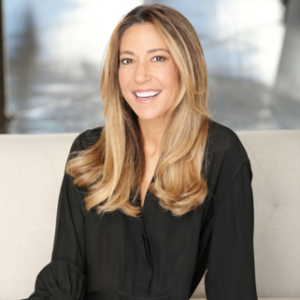
Pamela Naumes
Therapist
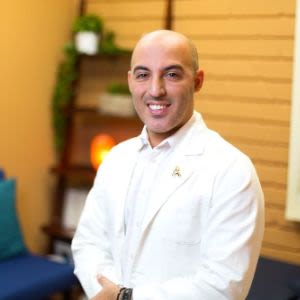
Dr. Elad Sinay
Chiropractor
D.C.

Richard Davitian
Chief Operating Officer

Jeremiah Barnes
Breathwork
RADT

Jannette Herring
Sound Bath
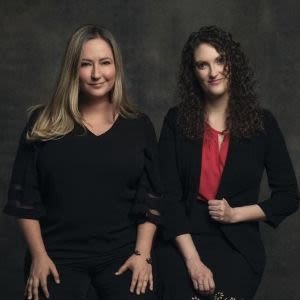
AdLib LA
Music and Improv Therapy
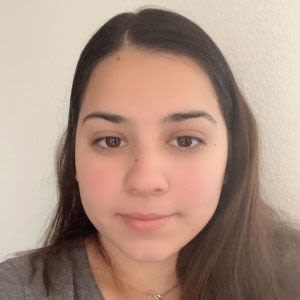
Kailey Bojorquez
Registered Alcohol and Drug Technician

Blanca Brown
Registered Alcohol and Drug Technician
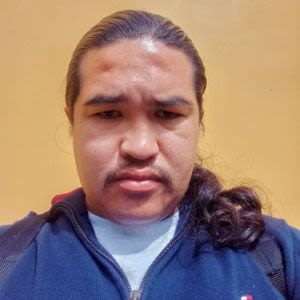
Jesus Rodriguez
Registered Alcohol and Drug Technician
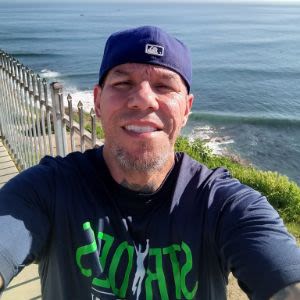
Jose Garcia
Registered Alcohol and Drug Technician




Levels of Care






Your Care Options
Specializations
Alcohol
Using alcohol as a coping mechanism, or drinking excessively throughout the week, signals an alcohol use disorder.
Co-Occurring Disorders
A person with multiple mental health diagnoses, such as addiction and depression, has co-occurring disorders also called dual diagnosis.
Couples Counseling
Partners work to improve their communication patterns, using advice from their therapist to better their relationship and make healthy changes.
Drug Addiction
Drug addiction is the excessive and repetitive use of substances, despite harmful consequences to a person's life, health, and relationships.
Professionals
Busy, high-ranking professionals get the personalized treatment they need with greater accommodations for work, privacy, and outside communication.
Who We Treat
Young Adults
Emerging adults ages 18-25 receive treatment catered to the unique challenges of early adulthood, like college, risky behaviors, and vocational struggles.
LGBTQ+
Addiction and mental illnesses in the LGBTQ+ community must be treated with an affirming, safe, and relevant approach, which many centers provide.
Midlife Adults
For adults ages 40+, treatment shifts to focus on the unique challenges, blocks, and risk factors of their age group, and unites peers in a similar community.
Professionals
Busy, high-ranking professionals get the personalized treatment they need with greater accommodations for work, privacy, and outside communication.
Approaches
Evidence-Based
A combination of scientifically rooted therapies and treatments make up evidence-based care, defined by their measured and proven results.
Holistic
A non-medicinal, wellness-focused approach that aims to align the mind, body, and spirit for deep and lasting healing.
Individual Treatment
Individual care meets the needs of each patient, using personalized treatment to provide them the most relevant care and greatest chance of success.
Twelve Step
Incorporating spirituality, community, and responsibility, 12-Step philosophies prioritize the guidance of a Higher Power and a continuation of 12-Step practices.
Therapies
1-on-1 Counseling
Patient and therapist meet 1-on-1 to work through difficult emotions and behavioral challenges in a personal, private setting.
Animal Therapy
Animals can inspire trust and self-worth. In this experiential therapy, guided interactions are used to improve social skills and emotion regulation.
Art Therapy
Visual art invites patients to examine the emotions within their work, focusing on the process of creativity and its gentle therapeutic power.
Family Therapy
Family therapy addresses group dynamics within a family system, with a focus on improving communication and interrupting unhealthy relationship patterns.
Interpersonal Therapy
This brief and structured therapy addresses present relationships and improves overall communication at work, home, and other social settings.
Life Skills
Teaching life skills like cooking, cleaning, clear communication, and even basic math provides a strong foundation for continued recovery.
Massage Therapy
Massage therapy relieves physical and emotional tension, reduces pain, promotes relaxation, and improves emotion regulation.
Medication-Assisted Treatment
Combined with behavioral therapy, prescribed medications can enhance treatment by relieving withdrawal symptoms and focus patients on their recovery.
Conditions We Treat
Stress
Stress is a natural reaction to challenges, and it can even help you adapt. However, chronic stress can cause physical and mental health issues.
Substances We Treat
Alcohol
Using alcohol as a coping mechanism, or drinking excessively throughout the week, signals an alcohol use disorder.
Benzodiazepines
Benzodiazepines are prescribed to treat anxiety and sleep issues. They are highly habit forming, and their abuse can cause mood changes and poor judgement.
Co-Occurring Disorders
A person with multiple mental health diagnoses, such as addiction and depression, has co-occurring disorders also called dual diagnosis.
Cocaine
Cocaine is a stimulant with euphoric effects. Agitation, muscle ticks, psychosis, and heart issues are common symptoms of cocaine abuse.
Drug Addiction
Drug addiction is the excessive and repetitive use of substances, despite harmful consequences to a person's life, health, and relationships.
Ecstasy
Ecstasy is a stimulant that causes intense euphoria and heightened awareness. Abuse of this drug can trigger depression, insomnia, and memory problems.
Heroin
Heroin is a highly addictive and illegal opioid. It can cause insomnia, collapsed veins, heart issues, and additional mental health issues.
Methamphetamine
Methamphetamine, or meth, increases energy, agitation, and paranoia. Long-term use can result in severe physical and mental health issues.
Opioids
Opioids produce pain-relief and euphoria, which can lead to addiction. This class of drugs includes prescribed medication and the illegal drug heroin.
Languages
Aftercare
Care Designed for Your Needs
Personal Amenities
Amenities
Special Considerations
Clients can bring their own pet(s)
For greater comfort and healing, pet-friendly treatment centers welcome dogs and animal companions to stay with their owners while they attend treatment.
Flexible technology policies
Centers with flexible technology policies allow professionals to stay in touch with work and give patients a greater sense of connection and normalcy.
Activities
Yoga
Yoga is both a physical and spiritual practice. It includes a flow of movement, breathing techniques, and meditation.
Off-Site Activities
Off-Site Amenities
What people are saying
Treatment
5.0
Accommodations
5.0
Food & Nutrition
5.0
Value
5.0
Pros
- Beautiful Location (4)
- Supportive Aftercare (3)
- Luxurious Accommodations (2)
- Excellent & Effective Treatment Programming (2)
Jonathan
Treatment in 2021 • (30 days) • Reviewed 03/31/23
Former Client
•Retail
•Dallas, Texas
Anonymous
Treatment in 2022 • (30 days) • Reviewed 08/12/23
Loved One of a Former Client
Christina
Treatment in 2023 • (30 days) • Reviewed 08/11/23
Former Client
•CALIFORNIA
Jennifer C
Treatment in 2022 • (30 days) • Reviewed 08/09/22
Loved One of a Former Client
•San Pedro
Anonymous
Reviewed 08/14/23
Referring Professional
•LCSW






